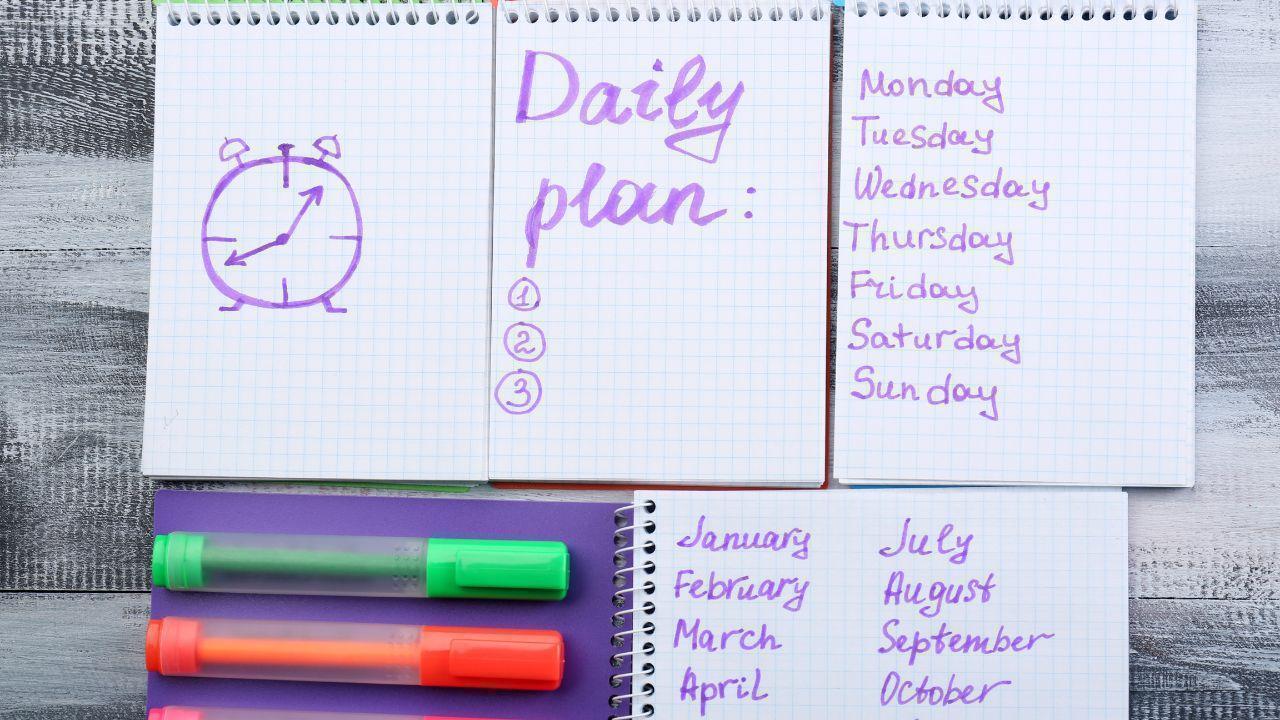



How Students Can Make a Realistic and Effective Study Plan
Many students feel stressed because they don’t know how to manage their time while studying. Some study all day but still forget what they learned. Others keep delaying their study and panic at the last moment. If you want to study better and feel less pressure, then you need to know How to Build a Study Timetable That Actually Works.
A good study timetable is like a roadmap. It shows you when and what to study so you can stay focused and make the most of your time. In this article, you’ll learn how to build a simple, realistic, and working study plan that fits your routine and helps you reach your goals.
Why Do You Need a Study Timetable?
A timetable is not just a piece of paper or a calendar. It is a way to stay organised and stress-free. When you have a timetable, you know what to study and when. This saves your time and keeps you away from confusion.
Also, when you follow a routine, you start building good habits. You can avoid last-minute stress before exams, and you get time to revise everything properly. This is the real secret behind why toppers always seem well-prepared—they know How to Build a Study Timetable That Actually Works.
Step 1: Know Your Goals and Subjects
Before you make your timetable, take a few minutes to understand your goals. Are you preparing for a school exam, a competitive test, or just trying to improve your weak subjects?
Write down all the subjects you need to study. Think about which ones are easy for you and which ones need more time. Knowing your goals and subjects will help you decide how much time you should give to each topic.
Step 2: Find Out Your Best Study Time
Some students focus better in the morning, while others study well at night. There is no fixed rule. You should pick the time when your mind is fresh and you are not sleepy or tired.
Once you know your best time to study, you can plan the most important topics during that time. This is a smart way to get better results with less stress.
Step 3: Make a Weekly or Daily Plan
Now it’s time to create your timetable. You can start with a weekly or daily plan. Use a notebook, calendar, or even a simple chart. Write down the subjects or chapters you want to study each day.
Make sure to include small breaks between study hours. For example, you can study for 50 minutes and take a 10-minute break. This helps you stay fresh and avoid burnout.
Also, keep some time for revision, homework, and rest. Don’t fill your entire day with only studies—balance is the key.
Step 4: Keep It Simple and Flexible
A timetable should be easy to follow. Don’t try to do too much in one day. If you fill your plan with too many tasks, you may get tired or demotivated.
Keep your study blocks short and focused. Study one subject at a time and don’t switch too quickly. Also, be ready to change your plan if needed. If something comes up or you miss a session, adjust your timetable without feeling bad. A good plan is one that can change when life does.
Step 5: Track Your Progress and Stay Consistent
Once you start using your timetable, check your progress every few days. Are you able to follow the plan? Are you finishing your chapters on time?
If something is not working, fix it. Maybe you need more time for a tough subject or need to add more breaks. The idea is not to be perfect, but to keep improving.
Also, remember to stay consistent. Follow your timetable as closely as you can. Even if you miss a day, don’t give up. Start fresh the next day and keep going.
Tips to Make Your Timetable Work Better
To make your timetable more effective, avoid distractions like phones and social media during study time. Keep your study space clean and quiet. Make sure you get enough sleep and eat healthy food. A healthy body supports a strong mind.
You can also reward yourself when you complete your study goals. Watch your favourite show, play a game, or go for a short walk. This keeps you happy and motivated.
Disclaimer:
The information in this article is for general learning and guidance only. Myedugoal does not promise any specific results from using the study methods shared. Every student is different, so it's important to create a study timetable based on your own needs and routine. Myedugoal is not responsible for any outcome based on how this content is used.
#trending #latest #studytimetable #myedugoal #studyplan #studentlife #timetabletips #examstrategy #studyguide #studymotivation #timeManagement #studenttips #studyroutine

University Internships That Help You Get a Job After Graduation... Read More.

Is It Smarter to Start at a Community College... Read More.
 Fake posts hit Czech PM Fiala's X
Fake posts hit Czech PM Fiala's X
Fake posts disrupt Czech PM Fiala's X account security
 Switzerland Tightens Export Rules
Switzerland Tightens Export Rules
Switzerland expands export controls on dual-use goods
 Google unveils Ironwood AI chip
Google unveils Ironwood AI chip
Google introduces Ironwood chip to accelerate AI tasks & apps
 TSMC Q1 revenue up 42%
TSMC Q1 revenue up 42%
TSMC sees 42% revenue surge in Q1, surpassing forecasts
 Amazon CEO Outlines AI Vision
Amazon CEO Outlines AI Vision
Amazon CEO reveals AI investment plans in new letter
 Osaka Hosts World Expo 2025
Osaka Hosts World Expo 2025
Japan blends tech and culture at Osaka Expo 2025 launch
 A16z Plans Big Bet on AI Startup
A16z Plans Big Bet on AI Startup
A16z may lead huge round in ex-OpenAI CTO’s new AI firm.
© MyEduGoal. All Rights Reserved. Design by markaziasolutions.com